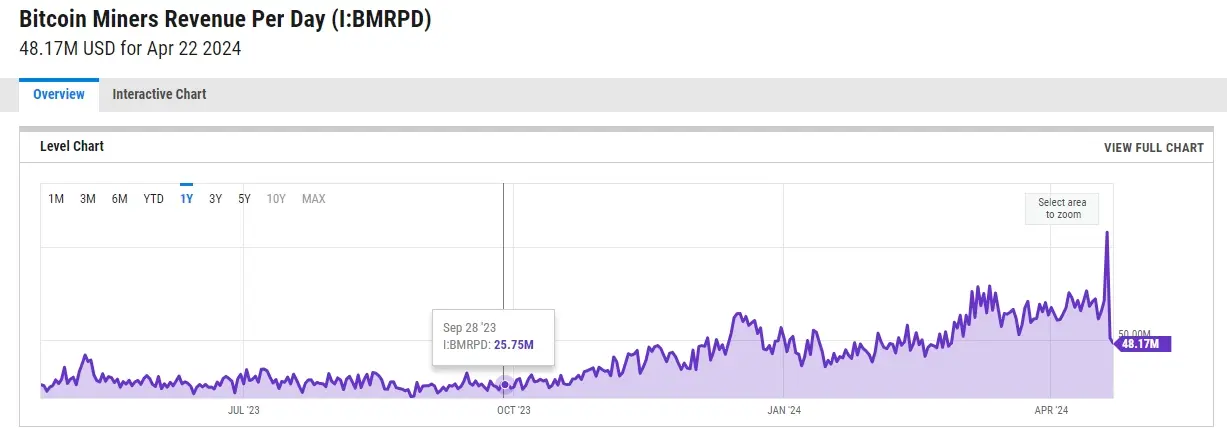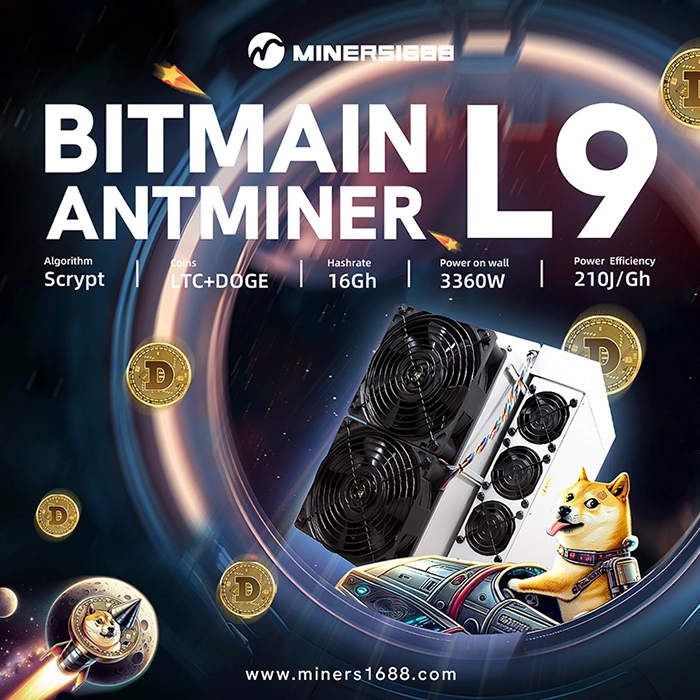In the rapidly evolving world of cryptocurrency, Bitcoin mining remains a cornerstone of the blockchain’s infrastructure, offering lucrative opportunities for those equipped to harness its potential. However, recent developments in blockchain technology, particularly the introduction of the Runes Protocol, have sparked significant shifts in the landscape. This innovative protocol has dramatically influenced Bitcoin transaction fees, leading to unexpected profitability for miners. Understanding these changes is crucial for anyone looking to capitalize on the current dynamics of Bitcoin mining.

Understanding Bitcoin Mining and Transaction Fees
What is Bitcoin Mining?
Bitcoin mining is the process by which new bitcoins are entered into circulation and is also a critical component of the maintenance and development of the blockchain ledger. It is performed using very sophisticated computers that solve extremely complex computational math problems. Miners who succeed in solving these problems contribute to the creation of a new block which is added to the blockchain. In return for their efforts and the computing power expended, miners are rewarded with new bitcoins—this process also validates and records all transactions made during a specific timeframe to the public ledger.
The Role of Miners in the Bitcoin Network
Miners are not just creators of new bitcoins. They are the backbone of the Bitcoin network’s security and integrity. By verifying transaction data and encoding it into the blockchain, miners prevent the problem of ‘double-spending’—where a Bitcoin owner illicitly spends the same bitcoin twice. This role is crucial because, unlike traditional banking systems, there is no central figure or intermediary, like a bank, to monitor the movement of funds. Therefore, miners help maintain the trustworthiness and security of the decentralized financial ecosystem.
Understanding Bitcoin Transaction Fees
Transaction fees in Bitcoin are the costs associated with the processing and securing of transactions on the blockchain. These fees are paid to miners as an incentive to continue to validate and add new transactions to the blockchain. The fee itself is not fixed and can vary depending on the network congestion at the time the transaction is initiated.
Factors Influencing the Cost of Transaction Fees
Several factors influence Bitcoin transaction fees, including:
- Network Traffic:The more transactions that are performed on the Bitcoin network, the higher the fees. During periods of high transaction volume, miners can prioritize transactions based on fees, leading to a competitive fee market.
- Transaction Size:Fees also depend on the size of the transaction in bytes. Larger transactions, which take up more block space, require higher fees to process because they are more complex to validate.
- Mining Difficulty:This refers to how difficult it is to find a new block relative to the easiest it can ever be. As mining difficulty increases, fewer miners are willing to accept low fees because their operational costs (like electricity and hardware maintenance) become more burdensome, pushing the average transaction fee upward.
Overview of the Runes Protocol
Introduction to Runes Protocol
The Runes Protocol represents a significant evolution in the functionality of the Bitcoin blockchain. It introduces the capability to mint and manage tokens directly on Bitcoin’s blockchain, which historically has been limited primarily to managing BTC transactions. This protocol is designed to enhance the utility of Bitcoin by allowing it to support a variety of new applications, similar to those enabled by smart contract platforms like Ethereum.
What is Runes Protocol and its purpose?
Runes Protocol is a layer built atop the existing Bitcoin blockchain, allowing for the creation of tokens that can be used for a multitude of purposes, from representing digital assets to enabling decentralized finance (DeFi) operations. The primary purpose of the Runes Protocol is to extend the functionality of Bitcoin beyond mere currency transactions, integrating features typically found in more programmatically flexible blockchains.
Historical context and development of the protocol
The Runes Protocol was developed by a group of Bitcoin developers who sought to expand Bitcoin’s capabilities without compromising its core principles of decentralization and security. This development came in response to the growing demand for blockchain platforms that could support complex financial products and services natively.
Impact of Runes Protocol on Bitcoin
The introduction of the Runes Protocol has had a profound impact on the Bitcoin ecosystem in several ways:
- Integration with Bitcoin:Runes Protocol works seamlessly with the existing Bitcoin infrastructure. It utilizes the underlying technology to secure transactions and leverages Bitcoin’s robust network effects.
- Immediate effects on the blockchain and transaction processing:One of the immediate effects of the Runes Protocol’s launch was an increase in transaction fees due to the heightened demand for block space. This demand comes from the need to process and validate not just traditional Bitcoin transactions but also those involving the creation and exchange of new tokenized assets.

The Financial Benefits of Runes Protocol for Miners
Enhanced Earning Potential
The introduction of the Runes Protocol has significantly altered the financial landscape for Bitcoin miners. As the protocol facilitates the creation of new types of transactions on the Bitcoin network, it inherently increases the demand for block space. This demand, in turn, drives up transaction fees, which can be a lucrative source of revenue for miners. Essentially, miners can benefit from increased earnings not only from the mining rewards but also from the heightened transaction fees associated with the added data processing required by Runes Protocol transactions.
Detailed Analysis of How Runes Protocol Can Increase Mining Profits
- Higher Transaction Fees:With the Runes Protocol, transactions have become more complex due to the additional data needed to record token creation and transfers. This complexity leads to larger transaction sizes, which require more fees to ensure they are processed by miners in a timely manner. Thus, miners have the opportunity to earn more by prioritizing these higher-fee transactions.
- Increased Block Rewards:Although the actual block reward in terms of Bitcoin per block halved following the recent halving event, the overall value of the rewards can be augmented through fees included in the transactions of a full block. As more users utilize Runes for token-related activities, the cumulative fees could result in substantially larger total block rewards.
Skyrocketing Fees: A Closer Look
- Trend Analysis:Statistical data showing the trend of transaction fees before and after the introduction of the Runes Protocol would illustrate the direct impact on miners’ profitability.
- Impact on Miner Strategy:The increase in fees has also led to changes in miner strategies, including the reconfiguration of mining hardware to optimize for profitability in processing Runes transactions, as well as adjustments in pool participation to leverage collective processing power for these more lucrative transactions.
How to Start Mining with Runes Protocol
Getting Set Up
Starting to mine Bitcoin using the Runes Protocol involves several important steps, each designed to optimize your operations for the new opportunities this technology presents.
- Choosing the Right Hardware:The first step in mining with Runes Protocol is selecting the appropriate mining hardware. While traditional Bitcoin ASIC miners are still applicable, the increased transaction size due to Runes transactions might require more powerful processors and larger memory to handle the additional data efficiently.
- Software Configuration:After securing the hardware, the next step is installing and configuring mining software that supports Runes Protocol. This software will not only manage the mining process but also ensure that transactions involving Runes are correctly processed and recorded on the blockchain.
- Joining a Mining Pool:Given the competitive nature of mining, joining a mining pool that supports Runes Protocol can significantly increase your chances of earning mining rewards. Pools combine the computational power of a group of miners to increase the likelihood of completing blocks and earning rewards, which are then distributed among pool members based on their contributed processing power.
Best Practices for Maximizing Earnings
To make the most out of your mining operations with Runes Protocol, consider the following best practices:
- Optimize for Efficiency:Efficiency is key in mining. This means not only using electricity efficiently but also ensuring that your mining setup is optimized to handle transactions and block creation for Runes efficiently. Upgrading firmware regularly, optimizing your mining software settings, and maintaining your hardware can help reduce costs and increase profitability.
- Stay Informed:The world of cryptocurrency mining is constantly evolving. Staying informed about the latest developments in the Runes Protocol, Bitcoin network adjustments, and general market trends can help you make better decisions and adapt your strategies accordingly.
- Risk Management:Diversifying your mining approach can help manage risk. This might involve allocating some resources to mine other cryptocurrencies or using financial instruments to hedge against Bitcoin’s price volatility.
Strategies to Capitalize on High Transaction Fees
- Transaction Fee Estimation Tools:Utilize tools that provide real-time data on transaction fees to strategically choose when to submit your mined blocks. This can help you maximize earnings by taking advantage of higher fees when the network is busy.
- Dynamic Scaling:Some miners adjust their transaction processing thresholds based on the current transaction fee environment. By dynamically scaling your transaction size and fees, you can better compete for block space during peak times and maximize profitability.

Challenges and Considerations
Potential Risks and Downsides
While the introduction of the Runes Protocol presents new opportunities for Bitcoin miners, it also comes with its share of challenges and risks that need careful consideration:
- Volatility of Bitcoin Fees:Bitcoin transaction fees are highly volatile. While the introduction of the Runes Protocol can lead to periods of high fees beneficial to miners, there can also be sudden drops in fees, which may affect profitability unpredictably. Miners need to be prepared for these fluctuations and manage their operations accordingly.
- Technical Challenges with Runes Protocol:As with any new technology, there are likely to be technical challenges and bugs that need to be ironed out in the early stages of Runes Protocol implementation. Miners need to stay updated with patches and new software releases to ensure they are mining efficiently and securely.
- Increased Complexity:The Runes Protocol increases the complexity of transactions, which requires more processing power and possibly more advanced knowledge in blockchain technology. Miners may need to upgrade their equipment or invest in continuing education to keep up with these changes.

Legal and Regulatory Considerations
The regulatory landscape for Bitcoin mining can vary significantly by country and can impact the profitability and legality of mining activities:
- Overview of the Legal Landscape for Bitcoin Mining:It’s crucial for miners to understand the legal context in which they operate, particularly concerning the use of cryptocurrencies and blockchain technology. This includes knowing about any taxes, restrictions, or licensing requirements that might apply.
- Impact of Regulations on Profitability:Regulations can also have a direct impact on profitability. For instance, some regions may impose high electricity tariffs for miners or taxes on earnings from mining, which can erode profit margins. Additionally, potential future regulations could affect how Runes Protocol is used and its integration into the mining process.
The Future of Bitcoin Mining and Runes Protocol
Trends and Predictions
The integration of the Runes Protocol into Bitcoin mining points towards a future where the functionality of Bitcoin is greatly expanded, opening the door to new applications and opportunities. Here are some trends and predictions that could shape the future of Bitcoin mining:
- Increased Adoption of Tokenization:As the Runes Protocol allows for the creation of various types of tokens on the Bitcoin blockchain, we can expect an increase in tokenization projects. This could lead to a broader use of Bitcoin for more than just currency transactions, potentially including things like asset management, proof of ownership, and even voting systems.
- Greater Institutional Interest:The expanded capabilities offered by the Runes Protocol might attract more institutional investors and businesses to Bitcoin mining. This could lead to increased investments in mining infrastructure and possibly even the development of new financial products based on Bitcoin’s expanded functionalities.
- Innovation in Mining Technology:The added complexity and potential profitability of mining with the Runes Protocol may drive innovation in mining technology. Miners will seek more efficient ways to handle larger and more complex blocks, leading to advancements in mining hardware and software.
Potential Changes and Updates to Runes Protocol
Given the evolving nature of technology and market demands, the Runes Protocol itself may undergo significant changes and updates to improve its functionality and efficiency:
- Enhancements for Scalability:As the adoption of the Runes Protocol grows, scalability will become a critical focus. Developers might introduce updates to streamline the processing of transactions to accommodate the increased volume without congesting the network.
- Improved Security Features:With the greater complexity introduced by tokenized assets on the blockchain, enhancing security to prevent potential vulnerabilities will be crucial. Future updates to the Runes Protocol may include advanced security measures to safeguard against fraud, theft, and other risks.
Impact on the Cryptocurrency Market
The broader implications of the Runes Protocol for the cryptocurrency market could be substantial:
- Enhancing Bitcoin’s Position:By adding functionalities traditionally available only on platforms like Ethereum, the Runes Protocol could solidify Bitcoin’s position not just as a store of value but also as a platform for decentralized applications.
- Influence on Other Cryptocurrencies:The success of the Runes Protocol could lead other cryptocurrency platforms to adopt similar innovations, potentially leading to a new wave of integrated blockchain solutions that blend the best features of Bitcoin with those of more flexible platforms.

Conclusion
The integration of the Runes Protocol into the Bitcoin network marks a pivotal moment in the evolution of cryptocurrency mining. By enabling tokenization directly on Bitcoin’s blockchain, Runes Protocol not only diversifies the potential uses of Bitcoin but also introduces new avenues for miners to enhance their profitability through increased transaction fees. This groundbreaking development promises to double the financial returns for proactive miners who adapt to and embrace these changes.
As we’ve explored, the journey of adapting to Runes Protocol involves a deep understanding of its mechanics, the strategic setup of mining operations, and navigating the associated challenges and regulatory landscapes. The potential financial benefits, while significant, come with the necessity for miners to stay informed and agile in a rapidly evolving environment.
For those considering entering the world of Bitcoin mining or those already involved but looking to adapt to the latest developments, the advent of the Runes Protocol represents both a challenge and an opportunity. It’s an invitation to be at the forefront of the next wave of blockchain innovation—a chance to redefine the boundaries of what Bitcoin can achieve.


